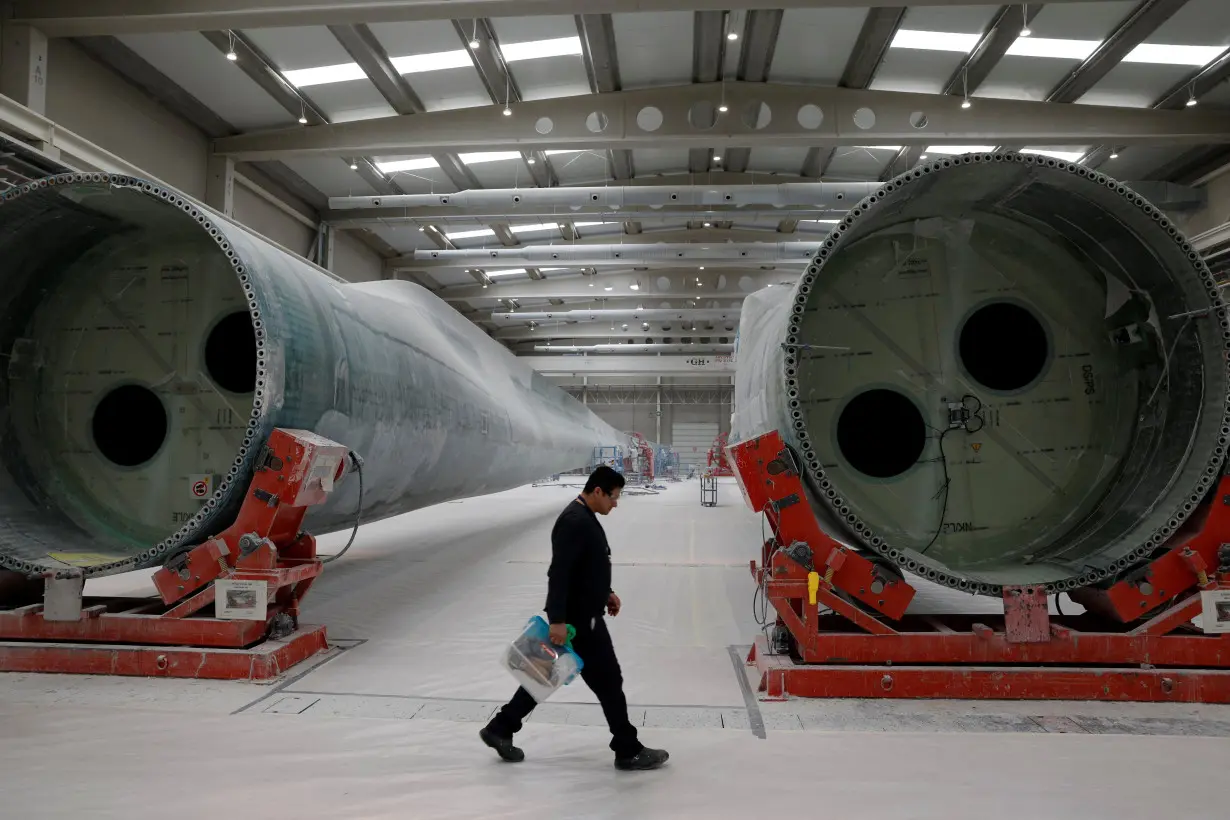LONDON (Reuters) - Euro zone manufacturing activity remained mired in contraction in July amid a broadbased malaise, with output declining at its fastest pace this year, according to a survey which indicated the bloc's economy was still struggling.
HCOB's final euro zone manufacturing Purchasing Managers' Index (PMI), compiled by S&P Global, held at June's 45.8 in July, just ahead of a 45.6 preliminary estimate. It has been below the 50 mark separating growth from contraction for over two years.
An index measuring output, which feeds into a composite PMI due on Monday that is seen as a good gauge of economic health, dropped from 46.1 in June to a seven-month low of 45.6, albeit just ahead of the 45.3 flash estimate.
"The widely held belief that the euro zone's recovery would pick up speed in the second half of the year is taking a hit," said Cyrus de la Rubia, chief economist at Hamburg Commercial Bank.
"Given this weak data, we'll probably need to lower our GDP growth forecast for the year from 0.8%. Among the countries covered by the PMI survey, only Greece and Spain are still seeing meaningful growth, although even there, momentum has slowed significantly."
The overall euro zone economy was expected to grow 0.7% this year, according to a July Reuters poll.
Demand, which has been in decline for over two years, fell at a faster rate in July, suggesting there won't be a swift turnaround. The new orders index fell to 44.1 from 44.4.
That was despite factories trimming their prices even though their costs increased faster.
"The European Central Bank might have mixed feelings about this. Sure, rising input prices could push inflation up, but falling profit margins might help keep that inflationary pressure in check," de la Rubia added.
After delivering a widely telegraphed rate cut in June the ECB left its deposit rate at 3.75% in July but will trim it twice more this year, the Reuters poll found.
Inflation unexpectedly edged up in July, official data showed on Wednesday, although a widely watched gauge of price growth in the services sector eased and the figures did not seem to derail market expectations for a September interest rate cut from the ECB.
(Reporting by Jonathan Cable; Editing by Toby Chopra)

 Michigan strips two clerks in small town of election duties over hand count plan
Michigan strips two clerks in small town of election duties over hand count plan
 What you need to know about the 2024 US presidential election
What you need to know about the 2024 US presidential election
 BOJ to keep rates steady as politics muddles outlook
BOJ to keep rates steady as politics muddles outlook
 IMF board approves Kenya's reviews, unlocking access to $606 million
IMF board approves Kenya's reviews, unlocking access to $606 million
 Siemens to buy engineering software firm Altair for $10.6 billion
Siemens to buy engineering software firm Altair for $10.6 billion
 Accuser of Sean 'Diddy' Combs cannot remain anonymous, judge rules
Accuser of Sean 'Diddy' Combs cannot remain anonymous, judge rules
 ‘Emily in Paris’ star Lucas Bravo mulling exit from show because he’s ‘frustrated’ with his character’s direction
‘Emily in Paris’ star Lucas Bravo mulling exit from show because he’s ‘frustrated’ with his character’s direction
 Second gambler admits trying to cash in on scheme involving ex-NBA player Jontay Porter
Second gambler admits trying to cash in on scheme involving ex-NBA player Jontay Porter

